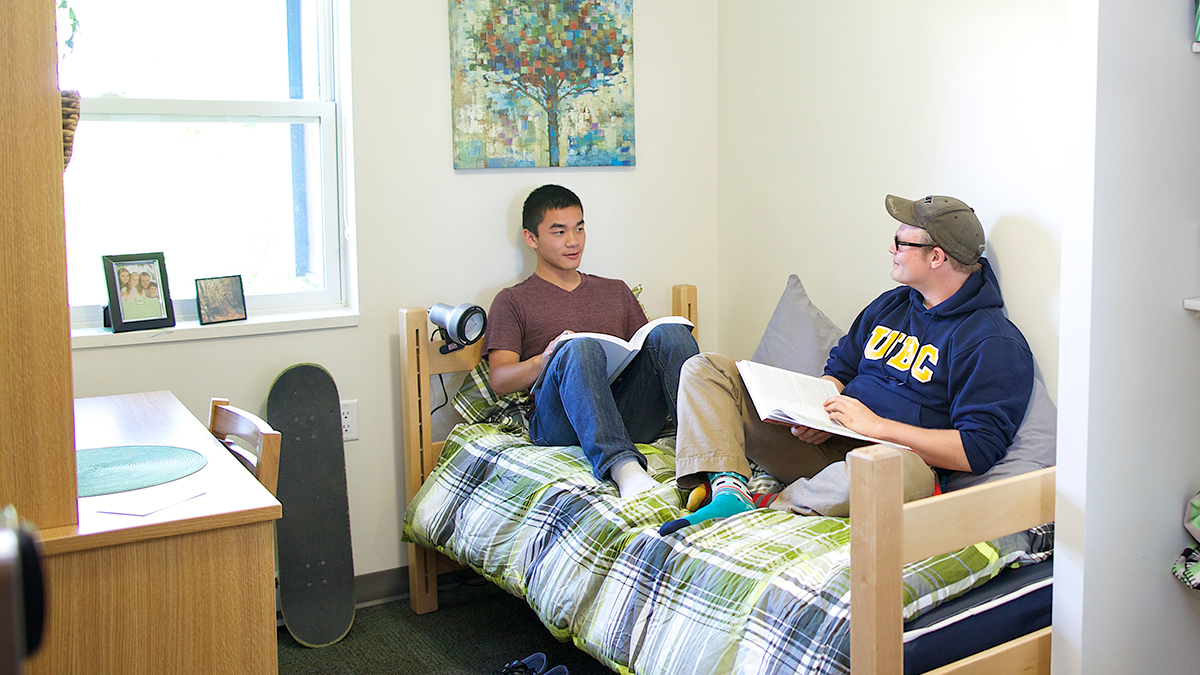
At UBC, we’re big believers in the benefits of living in residence. And we’re not alone. Researchers back us up and the students, themselves, do too.
From the scientists
Research has shown that, compared to students who commute, residence students:
- Are more comfortable with the campus environment and more satisfied with their university experience.
- Have more interaction with a diversity of faculty and staff, resulting in greater opportunity for mentoring relationships, academic discussion and exploration of ideas.
- Demonstrate greater gains in critical thinking.
- Show more rapid development of social and interpersonal skills.
- Experience greater personal growth and development.
- Have higher self-esteem, feel better about themselves, their accomplishments and demonstrate more self-confidence.
- Develop greater tolerance for different cultures and lifestyles, learning how to break down cultural biases and stereotypes.
- Build stronger friendships, and experience a greater sense of community.
- Are more involved in residence and campus extra-curricular and volunteer activities. In doing so, they gain “functionally transferrable” skills that will aid them throughout their lives. Skills such as:
- Interacting/working with others in small groups.
- Managing a budget.
- Expressing one’s ideas in formal or informal meetings.
- Negotiating with administration.
- Creating and following through on projects.
- Are more likely to graduate from university.
Best news of all? Research suggests the net effects of residence living tend to be cumulative, and may increase in magnitude over the resident’s university career.
From the students
Students love living in residence. Here are a few reasons why:
- Residence staff make us feel welcome.
- Making new friends from the great mix of people on my floor.
- Quiet study hours and easy access to information.
- Support when times are tough.
- Planned activities help me get to know my neighbours.
- The events—fun, fun, fun!
- Participating in intramural sports.
- Emphasis on respect for diversity.
- Meeting intelligent, creative, open-minded people.
- A good balance between academics and social activity.
- Learning to live with different people.
- Chances to participate and try new activities.
- Life here is good!








